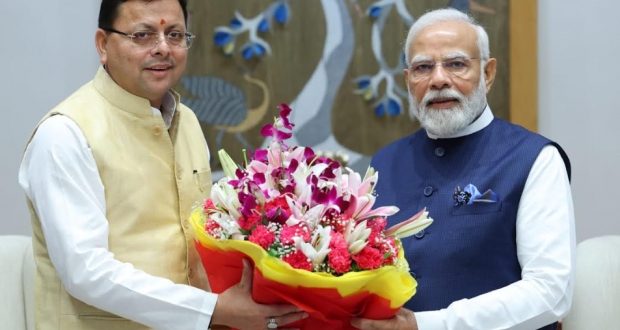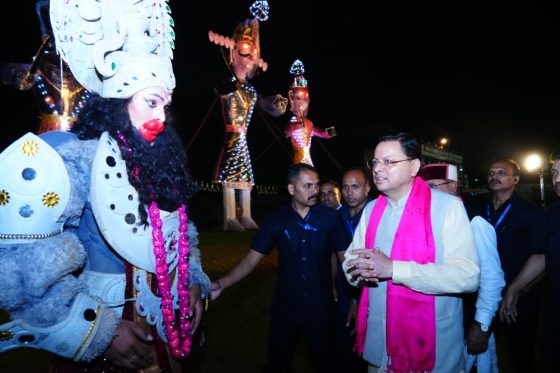Amidst mounting speculation and public anticipation, Uttarakhand Chief Minister Pushkar Singh Dhami recently met with Prime Minister Narendra Modi to discuss the implementation of the Uniform Civil Code (UCC). The UCC aims to replace the existing personal laws based on religious practices with a unified set of laws that will govern various aspects of personal matters for all citizens of India, regardless of their religious affiliations. CM Dhami’s affirmation of the UCC’s imminent implementation has sparked widespread discussions and debates on its potential impact and significance.
Meeting with PM Modi:
DAINIK NATION BUREAU : Uttarakhand Chief Minister Pushkar Singh Dhami’s meeting with Prime Minister Narendra Modi assumes great importance in the context of the ongoing debate surrounding the Uniform Civil Code. The meeting served as a platform for both leaders to deliberate on the roadmap for implementing the UCC and to address concerns raised by various stakeholders.
Impending Implementation: During the meeting, Chief Minister Dhami expressed his firm commitment to the implementation of the Uniform Civil Code in Uttarakhand. He reiterated that the UCC is a progressive step towards ensuring equality and justice for all citizens, irrespective of their religious beliefs. Dhami’s statement comes as a significant development, as Uttarakhand could become one of the first states in India to enforce the UCC.
What is the Uniform Civil Code? : The Uniform Civil Code proposes a common set of laws governing personal matters such as marriage, divorce, inheritance, and adoption for all citizens. Currently, different religious communities in India are subject to separate personal laws based on their respective religious practices. The UCC seeks to replace these distinct laws with a uniform set of civil laws applicable to all, promoting gender equality and social cohesion.
Controversies and Debates: The prospect of implementing the Uniform Civil Code has ignited intense debates across the country. Critics argue that it may infringe upon the religious freedom and cultural diversity of different communities. They assert that personal laws are deeply rooted in religious traditions and should be left untouched. On the other hand, proponents of the UCC argue that it will ensure equal rights and opportunities for all citizens, transcending religious boundaries.
Significance and Potential Impact: If Uttarakhand successfully implements the Uniform Civil Code, it would set a precedent for other states to follow suit. The move would signal a significant step towards achieving uniformity and equality in personal laws across India. Proponents argue that a unified civil code would eliminate discriminatory practices and provide a level playing field for all citizens, especially women, in matters of marriage, divorce, and inheritance.
Uttarakhand Chief Minister Pushkar Singh Dhami’s recent meeting with Prime Minister Narendra Modi and his reaffirmation of the imminent implementation of the Uniform Civil Code has generated considerable interest and discussion. While critics raise concerns about potential challenges and cultural implications, proponents view it as a progressive step towards ensuring equal rights and social harmony. As the nation watches closely, the implementation of the UCC in Uttarakhand could mark a significant milestone in India’s legal and social landscape, shaping the future of personal laws for all citizens.
Regenerate response
 Dainik Nation News Portal
Dainik Nation News Portal

